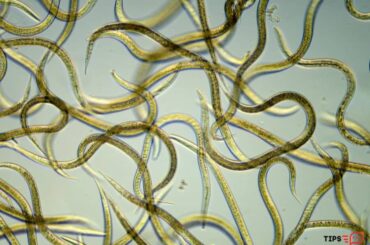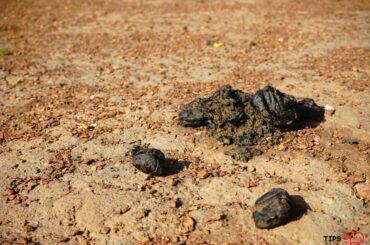Are you a green-thumb in the making, or an experienced gardener looking for something new? Compost tea is here to take your soil and garden to the next level. Although it may sound complicated, compost tea can be made simply with the right ingredients – and that’s what we’re going to talk about today!
Over my years of experience, I’ve learned how beneficial this amazing natural solution can be for any garden. Not only does it nourish your plants with essential nutrients, but there are many other advantages too. That’s why I’m so passionate about teaching people how to make their own compost tea at home.
So let’s dive into our complete guide on how to make your very own rich and nutritious compost tea! In this article, you’ll learn everything from gathering supplies and understanding brewing basics to harvesting the final product – plus lots more along the way. Get ready to get your hands dirty (literally!) as we explore one of nature’s most powerful secrets together.

Definition Of Compost Tea
Compost tea is an organic liquid that’s made by soaking compost in water. It contains beneficial microbes, fungi and other organisms beneficial to plants and soil. So what exactly is it? Well, the short answer is that compost tea is a fertilizer solution composed of nutrients from aged plant material.
The long answer is that this nutrient-rich infusion helps promote healthy root development, disease resistance, and overall plant vitality.
Compost tea has many benefits for your garden or yard including improved soil health, increased fertility, enhanced microbial activity, better water retention capabilities, increased production of nitrogen and phosphorus-fixing bacteria, as well as improved air circulation around the roots of plants.
In addition to these benefits, using compost tea also helps reduce wastage since you can reuse any leftover composted material in future batches of compost tea. This makes it an economical choice for gardeners looking to get maximum value out of their resources while still achieving optimum yields.
Transitioning now into the next section about the ‘benefits of using compost tea in the garden’, let us explore how this simple yet powerful mixture can help make gardening easier and more productive!
Benefits Of Using Compost Tea In The Garden
Immersing yourself in the world of compost tea can be an incredibly rewarding experience. Not only does it provide an endless source of nourishment for your plants, but it also helps to improve soil quality and create a more sustainable garden environment. To understand how compost tea benefits the overall health and wellbeing of your garden, let’s take a look at some of its most notable uses.
Compost tea is known to improve plant growth by providing essential nutrients that are often found lacking in conventional fertilizers. It not only encourages healthier roots but also increases the number of beneficial microorganisms in the soil which help to break down organic matter into usable forms of nutrition for plants.
Additionally, using compost tea regularly can reduce disease risk as well as improving drainage, aeration and water retention within the soil – all key components for successful gardening!
By introducing these helpful microorganisms into your garden ecosystem, you can promote better nutrient cycling as well as improved root development. Compost tea produces both short-term and long-term benefits; from increased yields to enhanced flavor profiles of fruits and vegetables over time.
As such, regular use of this natural fertilizer provides numerous advantages that no other product or practice can replicate – making it one of the most effective ways to ensure healthy soils and thriving plants that will last season after season.
What You Need To Make Compost Tea
To make compost tea, you’ll need a brewing container, some compost material and an aerator pump. It’s also beneficial to have water that has been filtered or treated in some way. To ensure the best results, I recommend using a stirring tool such as a paddle or spoon while preparing your brew.
If you don’t want to get too hands-on during the process, there are now special tea bags available that allow you to steep your compost right in the bag! This is great if you’re short on time or equipment.
In addition, having access to quality compost materials can help enhance the nutrient profile of your finished product. Look for organic sources such as worm castings and plant matter which will provide essential nutrients like nitrogen and phosphorous for your plants. With these supplies in hand, you’re ready to start making high-quality compost tea – let’s take a look at the detailed guide next!

How To Make Compost Tea Detailed Guide
Making compost tea is easy, but it’s important to use the right ingredients and adhere to a few guidelines. To get started, you need the following: a compost tea recipe, compost tea ingredients (like aged manure or worm castings), as well as equipment such as an aerator pump and a fine mesh bag for brewing.
Once you have all of your materials gathered up, you can begin the process of making your own batch of compost tea. Start by adding 1-2 cups of compost material into the mesh bag and tie off the top. Place this in a 5 gallon bucket filled with water and let sit for 18-24 hours at room temperature.
After that time has elapsed, attach an aerator pump to the bottom of the bucket and turn on if needed. The bubbling action from the pump will help oxygenate your brew which is essential for optimal growth stimulation. Once finished brewing, remove the mesh bag from the bucket and discard any solid material left behind before transferring your tea into another container for application or storage purposes.
When ready to apply, dilute 10 parts water per one part compost tea before spraying onto plants or soil surfaces – never apply full strength! Compost Tea should be used within 24 hours once brewed; after that point its effectiveness decreases significantly so make sure not to let it go unused too long!
Tips For Optimal Brewing Conditions
Brewing compost tea is an art form; it’s like a delicate dance between all the brewing conditions to ensure you create the perfect elixir! To get started, temperature is key. You want your brew to be warm enough to activate and feed microbes but not too hot that it kills them off. The optimal range lies between 68°F and 77°F (20-25°C).
Oxygen levels need to balanced as well – if there isn’t enough oxygen present then aerobic activity will slow down significantly. A good rule of thumb is to make sure your air pump runs for at least 20 minutes before adding any additional ingredients. Additionally, when stirring the mixture during brewing time keep in mind that this helps with aeration so don’t forget about this step!
Nutrient levels should also be taken into consideration; having higher concentrations can increase microbial growth rates dramatically. As such, add some extra molasses or kelp meal to reach desirable nutrient levels. Finally, light exposure needs to be minimized as much as possible since UV radiation can damage beneficial organisms living within the tea concoction; therefore avoid direct sunlight as best you can while actively preparing and/or storing your brew.
Now that we’ve covered how important each variable is it’s time move onto figuring out just how long you should brew the tea for…
How Long To Brew The Tea For
Brewing time for compost tea will depend on the type of tea you are making. If I’m making an aerobic tea, then a shorter brewing time is required – usually around 24-48 hours. This ensures that optimal levels of beneficial microorganisms are generated and maintained in the brew. On the other hand, if I am making anaerobic tea, then it needs to be brewed for much longer – typically 72-96 hours.
It’s important to remember that there isn’t a hard and fast rule as to when your tea should be ready; rather, you should use this time frame as a guide. Don’t worry too much about how long exactly it takes – just make sure that you stick within the length of brewing required for either aerobic or anaerobic teas! With practice and experience, you’ll get better at gauging when your own batch of compost tea is ready.
How To Know When The Tea Is Ready
Once you’ve brewed your compost tea, it’s time to check if it’s ready. As a compost tea expert, here are some tips I can give you:
- Check the color of the brew – The tea should be light in color and have an earthy smell.
- Listen for bubbling sounds – If you hear any gurgling or bubbling sound coming from the bucket, that means there is still oxygenation occurring, which indicates your tea is not yet finished brewing.
- Test the pH level – You’ll want to test the pH level of your brew with a simple litmus paper test strip. The ideal range for aerobic compost teas is 6-7.5 on the pH scale.
If everything looks good and all tests pass with flying colors, then congratulations! Your brew is finally ready and you’re now prepared to apply it to plants.
How To Apply Compost Tea To Plants
Now that the compost tea is ready, it’s time to apply it to your plants. There are several methods for applying compost tea, so you can pick the one that best suits your needs.
The simplest way to apply compost tea to plants is by using a watering can or spray bottle filled with the tea and distributing it evenly over the soil surrounding them.
Alternatively, if there are specific areas of concern on particular plants, such as spots where disease has been found, then spraying directly onto those spots can help reduce its spread and increase their health. For larger trees and shrubs, buckets of compost tea may be used for drenching or soaking around the base of the plant.
Whichever method you choose, make sure not to exceed recommended application rates as excessive amounts could cause damage instead of improvement in your plants’ health. The next step is knowing when to use compost tea; this will vary depending on what type of plants you have growing in your garden.
When To Use Compost Tea
As the saying goes, timing is everything. As a compost tea expert, I can tell you that when it comes to using compost tea in your garden or crop, understanding when to use and apply it is key. There’s no one-size-fits-all answer since optimal timing for applying compost tea will depend on what type of plantings you have and their growth cycles, as well as where you live.
In general though, springtime is usually the best time for using compost tea since this is when plants are actively growing and preparing to bloom during warmer months (in climates with cold winters). But if you’re located in a subtropical climate, autumn could be the better season for applying compost tea due to its rainy weather conditions.
When making your own homemade brews, try to do so at least two weeks before planting out seedlings and/or transplanting into larger containers. That way, soil microbes have had enough time to colonize roots after application. It’s also important not to overuse compost teas – too much of anything isn’t good! So make sure that whatever ratio of ingredients you decide upon won’t cause harm or burn plants with excessive nutrients.
By being mindful of these factors and taking note of seasonal changes in your area together with determining which type of compost tea works best for your particular set up, you’ll soon start seeing great results from using this powerful liquid fertilizer.
How Much Compost Tea To Use
When it comes to using compost tea, the amount of tea you need depends on your goals. Generally speaking, a larger dose of compost tea is needed when applying it to soil or plants that are not healthy. This is because the beneficial microorganisms in the tea will work harder to replenish depleted soils and help struggling plants recover from environmental stressors.
To get an idea of how much compost tea to use, here’s a brief list:
- For general gardening applications, aim for 1-2 gallons per 100 square feet (1-2 liters/square meter)
- When planting new shrubs or trees, use 2-3 gallons per plant (2-3 liters/plant).
- For large vegetable gardens, apply up to 5 gallons per 100 square feet (5 liters/square meter).
It’s important to note that these doses should be adjusted based on the concentration of compost tea being used. A higher concentration may require lower amounts while weaker concentrations might call for more usage; consult with a local expert if necessary. Additionally, always follow application instructions provided by the manufacturer as they will vary depending on the product. Remembering these guidelines can ensure successful outcomes when applying compost tea!
Precautions To Take When Using Compost Tea
When it comes to using compost tea, safety should be a priority. If you’re not careful with your use of compost tea, there are some risks involved. It’s important to take the necessary precautions and know what the potential health risks are when working with this powerful product.
First off, never drink or spray compost tea onto edible plants like vegetables or fruits. Compost teas can contain pathogens that could make people sick if they consume them directly from food sources. When spraying compost tea around edibles, always wear protective gear such as gloves and goggles so you don’t get any of the liquid on yourself. Make sure to also keep children away from where you’re applying the solution for extra precaution.
Additionally, avoid contact between untreated water and finished compost tea because bacteria can multiply quickly in these conditions – leading to contamination of both sources. Keep your brewing container clean and only use pure water without chlorine or other chemicals added in.
Finally, make sure the materials used for making compost tea are very well decomposed before adding them into the mixture – otherwise contaminants may remain in the final product which would not be safe to apply near edible plants either.
Before getting started with making your own compost tea at home, it’s worth doing more research about how to safely handle and use it properly so you can reap its full benefits while minimizing risk exposure along the way!
Can I Use Compost Tea On All Plants?
Compost tea is an incredibly powerful and versatile gardening tool. It’s so magical in fact, that it almost seems too good to be true! But while compost tea can work wonders for many different plants, unfortunately not all species are suitable candidates for this organic elixir.
To ensure optimal results and a healthy growing environment, here are some points to consider when selecting the right plants for your compost tea:
- Consider the plant varieties you have available – Different types of plants will require varying levels of nutrients from the compost tea. Make sure you choose a variety suitable for your climate and soil conditions.
- Determine which crops would benefit most from compost tea – Some crops are naturally more suited to receiving compost tea than others. Research what’s best for each type of plant before applying any fertilizer.
- Choose appropriate plants for your garden – Not all plants thrive in every kind of environment, so make sure you select ones that can tolerate the amount of moisture or shade present in your specific location.
- Select only those plants labeled as ‘suitable for use with compost tea’ – This will help ensure they receive only the necessary levels of nutrient supplied by the brew.
So if you’re looking to get the most out of your composting efforts and give your garden a much needed boost, remember to pick only those crop varieties that are truly compatible with using compost tea!
How Long Does Compost Tea Last?
Compost tea’s shelf life can vary depending on how you store it. Generally speaking, compost tea will last for up to 10 days when stored in a cool, dark place out of direct sunlight. However, if the temperature rises above 70°F (21°C), then the duration might be reduced to five days or less. To ensure that your compost tea has an extended expiration date and doesn’t spoil prematurely, it is important to keep it in a sealed container away from extreme temperatures.
With proper storage practices and cooling techniques, such as adding ice cubes or refrigerating the solution before use, you can extend the preservation period of your compost tea significantly. You should always check the color and smell of your compost tea before application to make sure that it is still suitable for use. If anything appears off with either quality, discard and prepare a fresh batch instead!
Can I Make Compost Tea With Just Leaves And Grass Clippings?
Yes, you can make compost tea with just leaves and grass clippings. However, for the best results, it is recommended to also use other organic matter such as fruit and vegetable scraps or coffee grounds. This will increase the microbial diversity of your compost tea and provide more nutrients for your plants.
Making compost tea from leaves and grass clippings alone can be done in one of two ways: either by adding them directly into a bucket of water that contains an aerator or by layering dry ingredients with wet layers of decomposing materials like leaves and grass clippings.
The former method requires less time but does not produce as much biomass compared to the latter option. Additionally, when making compost tea with just leaves and grass clippings, it’s important to keep the mixture well-aerated so bacteria have enough oxygen to grow and thrive. You may need to stir or agitate the mix periodically while brewing.
Can I Use Rainwater For Making Compost Tea?
Yes, you can use rainwater for making compost tea. Rainwater is a great source of water to make compost tea with because it contains free-flowing minerals and nutrients that are beneficial for plants. It’s also usually much softer than tap water, which makes it easier to work with when brewing your compost tea solution.
When using rainwater for compost tea, be sure to strain out any debris or dirt from the collected runoff before adding it to the mixture. This will help ensure that your brewed tea doesn’t contain any unwanted particles that could harm your plants.
When preparing your compost tea recipe, keep in mind that rainwater typically has a lower pH level than other types of water sources, so you’ll want to adjust the amount of acidity or alkalinity accordingly. For example, if you’re using rainwater as opposed to municipal tap water, then reduce the amount of acidic additives like vinegar or lime juice by half in order to achieve optimal nutrient balance in your brew.
Additionally, since most rainwater is fairly low in essential elements like nitrogen and phosphorus, you may need to add extra organic matter such as molasses or fish emulsion in order to boost these levels.
Conclusion
As a compost tea expert, I can say with confidence that compost tea is an extremely effective and easy way to add nutrients to your garden. It is not only good for the soil but also helps create healthier plants and richer harvests. The process of making compost tea may seem intimidating at first, but once you understand the basics it’s actually quite simple. For those willing to put in the effort, there are many benefits to be had from using compost tea in their gardens.
Compost tea has been described as ‘liquid gold’ due to its ability to reinvigorate tired soils and give life back into parched landscapes. In much the same way water gives us life, so too does compost tea do this for our plants – providing them with essential nutrition they need to grow strong and healthy. When brewing your own teas, use quality ingredients, pay attention to optimal conditions and don’t forget to have fun!
Ultimately what makes compost tea such an invaluable resource is its power to create beautiful gardens full of lush vegetation that will bring joy all year long. So whether you’re just getting started or a seasoned pro, go out there and make some magic happen with some liquid gold!





